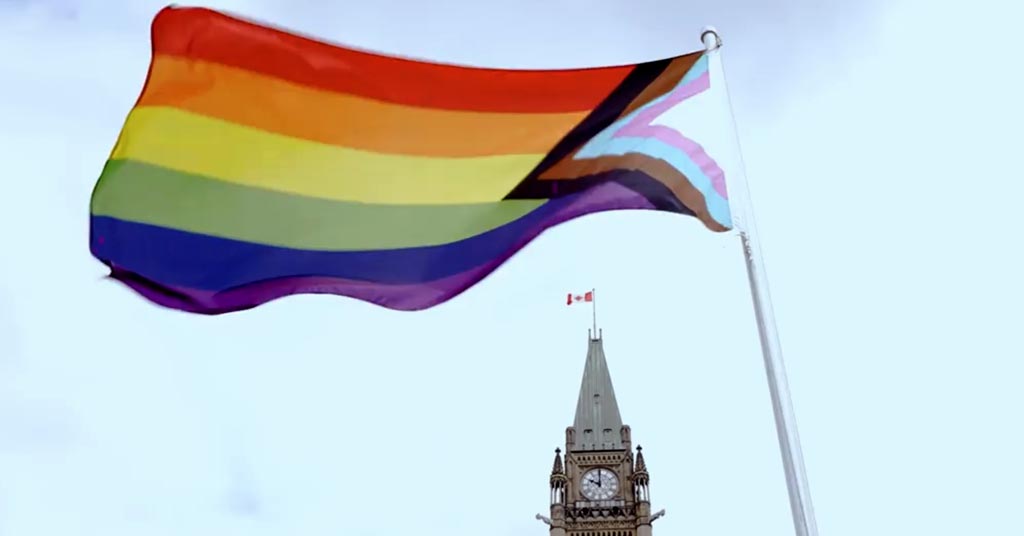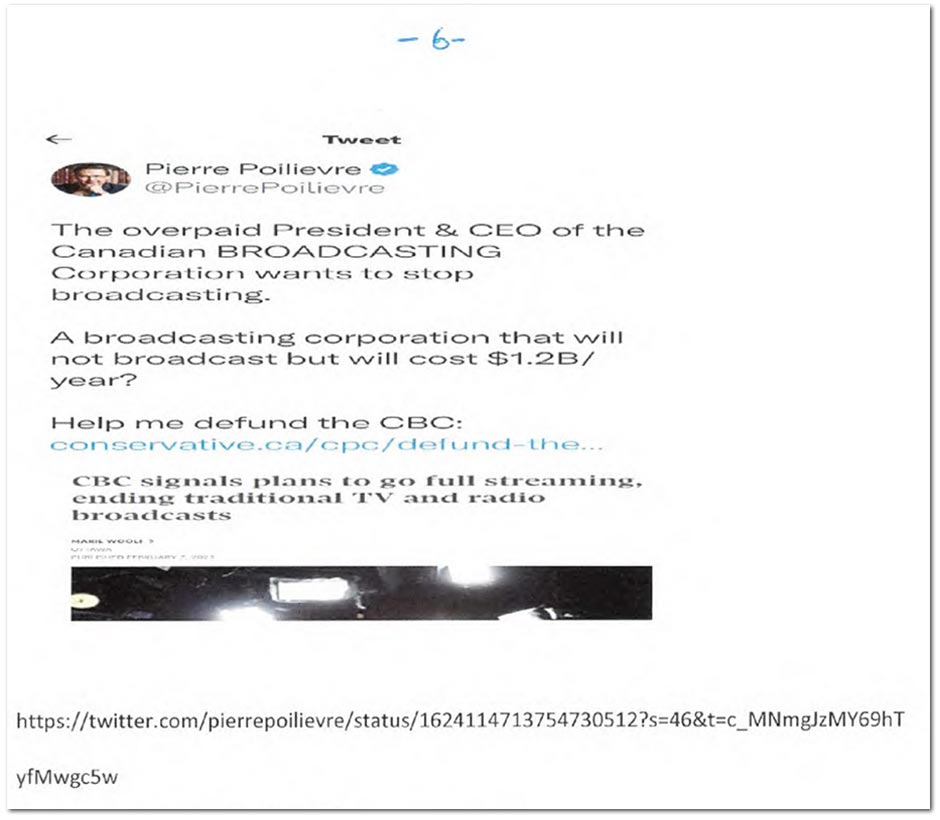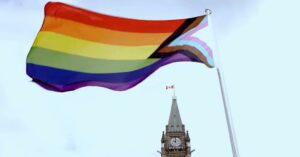
Right-Wing Trolls Are Freaking Out After Learning They Can Get Sued for Calling People ‘Groomers’ on the Internet
New court decision reinforces that there is no public interest in speech that exposes vulnerable groups to hate
Believe it or not, anonymous right-wing trolls can, in fact, get sued for baselessly calling people “groomers” on the Internet.
While many Canadians may find this obvious, right-wing social media personalities appear surprised by a recent court decision in Ontario that takes away what they apparently assumed was their freedom to call random strangers “groomers” and “pedophiles” online.
Last year, Rainbow Alliance Dryden, a 2SLGBTQIA+ community group in Dryden, Ontario launched a defamation lawsuit against Brian Webster, a Thunder Bay blogger who runs a local Facebook page.
The lawsuit was prompted by Webster’s anonymous posts reacting to a CBC News article about a drag story time event organized by the plaintiffs: “Ask yourself why these people need to perform for children?” Webster wrote. “Groomers. That’s the agenda.”
Last week, Ontario’s Superior Court of Justice issued a decision rejecting an anti-SLAPP motion Webster filed claiming the lawsuit against him was a “gag proceeding” designed to “silence me and punish me through the improper use of the courts.”
In Rainbow Alliance Dryden et al v. Webster, the Superior Court ruled that “groomer” rhetoric targeting our clients – a drag king and a Pride – is not public interest expression protected by Ontario’s anti-SLAPP laws. Here’s our take on the decision: https://t.co/Sv9SHufmEk 1/2
— Douglas W. Judson 🇨🇦 (@dwjudson) December 15, 2023
In its decision, the court found Webster’s statements failed a basic “public interest” test since “perpetuating hurtful myths and stereotypes about vulnerable members in our society” does not represent speech anti-SLAPP rules are “intended to protect.”
“I agree with the Plaintiffs that perpetuating such stereotypes and myths about members of the 2SLGBTQI community is not public interest speech,” the decision explains. “It is not a matter about which the community has a genuine interest or genuine stake in knowing.”
“If the post merely questioned the propriety of drag storytime for children, or expressed his opinion that drag storytime is not appropriate for children, I may have been inclined to find that the matter was social commentary and public interest speech.”
The court also noted Webster appeared to have no valid defence since his statements were “not recognizable as an opinion” and there appeared to be “no factual basis for the allegation.”
The decision has been met with alarm and concern inside right-wing circles, where online rhetoric targeting the LGBTQ+ community as “groomers” and “pedophiles” has increased dramatically over the last year or two.
“Mike Campbell,” an account affiliated with the right-wing “Counter Signal” website, warned its followers that the ruling “sets the stage for defamation lawsuits against anyone who uses the term” (“groomers”), while Shadoe Davis, a right-wing podcaster, similarly warned: “Do not use the word ‘groomer’ to describe drag queens.”
Attention: Do not use the word #groomer to describe drag queens. Bad precedent out of Thunder Bay today as an Ontario Superior Court Justice rules anti-SLAPP laws do not apply in this case. We should presume this is offline and online. https://t.co/sHwOtzBOTE
— The Shadoe Davis Show (@ShadoeDavis) December 15, 2023
Other right-wing accounts variously reacted by describing the move as Orwellian, lamenting the death of free speech and even contemplating leaving Canada for good. Some rejected the authority of the court altogether while others questioned if the judge herself had “something to hide.”
Another asked if they could also get in trouble by calling someone a “pedo”?
Douglas Judson, the lawyer for the plaintiffs, said he hopes the decision will send a message to those pushing “outmoded conspiracy theories” targeting the 2SLGBTQ community.
“The decision is significant because, to my knowledge, it is the first case that has looked at this commentary we are seeing online describing members of the drag community and more broadly 2SLGBTQ folks or trans people as ‘groomers’,” Judson told PressProgress.
“Hopefully, this will stand as an example of how our laws protect members of vulnerable communities that are subject to very targeted online hate speech and harassing commentary (that is causing) reputational damage and frankly distress in their everyday lives.”
To identify the defendant, Judson obtained court orders requiring Meta and Bell to produce subscriber information and IP addresses linking the anonymous Facebook page to Webster.
“I think that something that happens is that people engage in very free-wheeling expression online that is of a hateful and unsavory nature without realizing there is a trail of breadcrumbs of data points that connect them or their devices back to those comments despite that they might be using a random Twitter handle or making efforts to hide their names.”
Egale Canada, one of Canada’s largest 2SLGBTQ+ advocacy groups and an intervenor in the case, said in a public statement that the decision is “significant” in demonstrating that “calling drag performers ‘groomers’ is an accusation of child sexual abuse and that people targeted by that accusation have the right to take legal action to protect their reputations.”
“This is an important decision for 2SLGBTQI communities that comes at a time when we are facing unprecedented levels of hate, harassment, and violence fuelled by the spread of misinformation and disinformation,” Eagle said.
1/ A case before the Ontario Superior Court of Justice that Egale Canada has intervened in, Rainbow Alliance Dryden et al. v. Webster will continue to trial after a court ruling that the slur groomer perpetuates hateful myths & stereotypes about members of the 2SLGBTQI community pic.twitter.com/Sl3dr9nfMw
— Egale Canada (@egalecanada) December 18, 2023
In a factum, Egale argued Webster’s statement “recycles the age-old and harmful trope that conflates 2SLGBTQI people with pedophiles and sexual predators” and asked the court to reject the notion that the public has any interest in being exposed to hateful speech.
“Exposure to hatred or contempt constitutes serious harm, particularly where there is evidence that the expression has fomented hateful responses and threats of violence,” Egale noted, adding “there is no public interest in protecting expression that baldly asserts that 2SLGBTQI individuals are ‘groomers’.”
In court documents, Webster had argued that he had simply “expressed the opinion the CBC was grooming,” adding that “current events and CBC’s promotion of drag performers to children” are “matters of great public interest.”
Webster produced a copy of a tweet by Conservative leader Pierre Poilievre calling for defunding CBC as evidence his statements related to matters of public interest.

Brian Webster (Notice of anti-SLAPP motion, April 3, 2023)
Judson believes this case, along with a recent Supreme Court of Canada decision involving anti-LGBTQ+ school trustee Barry Neufeld, show “developments in the area of anti-SLAPP and defamation that is recognizing the social context of historically marginalized communities.”
“The commonality between the two cases appears to be that the court is recognizing that the social context in which expression occurs matter,” Judson said, explaining that in the Neufeld case, the Supreme Court recognized the social value of “counter speech” or “speaking up in support of historically marginalized communities.”
“In our case, we see the court unwilling to even recognize this type of expression that is smearing people who the publisher doesn’t even know … and is suggesting they are pedophiles or engage in some sort of lurid sexual predation targeting young people – the court is saying that is not expression that is connected to a matter of public interest.”
The first question judges in anti-SLAPP cases need to establish is whether or not a statement relates to a matter of public interest. Judson said it’s significant the judge rejected the idea that calling someone a “groomer” has any public interest value because it clarifies the very concept of “public interest” is not content neutral but rooted in Charter values.
“I think it’s really important that this was thrown out in the first step because it means that we’re not really going to toy around with the notion that smearing people with this vile language is remotely connected to something that serves the public interest, that relates to a matter of public interest and so forth.”
The defeat of Webster’s anti-SLAPP motion means the case can now proceed to a full trial to determine if he defamed the plaintiffs. The plaintiffs are seeking over $190,000 in damages.
Our journalism is powered by readers like you.
We’re an award-winning non-profit news organization that covers topics like social and economic inequality, big business and labour, and right-wing extremism.
Help us build so we can bring to light stories that don’t get the attention they deserve from Canada’s big corporate media outlets.
Donate



